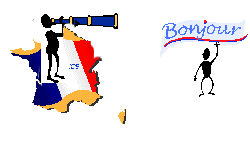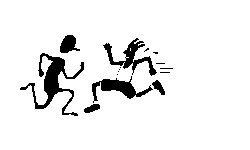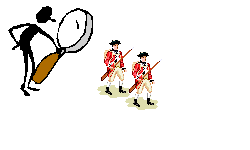
foreword | Historical Narratives | Resources | Links | Contact
TREASON, TRAITORS, SPIES AND LIES
History is remembered, recovered and invented.
In wartime truth is so precious she must be attended by a bodyguard of lies. Winston Chuchill
"Your acquaintance, now an officer in the Continental Army, was sent by the United States' Congress to Niagara as a spy in order to report on the state of Fort Niagara and the British garrison therein."
 |
This message along with a warning to watch all Americans particularly any suspicious ones lurking in the vicinity of any British fortress was sent to Lieutenant-Governor John Graves Simcoe in 1792. Tensions were high in Upper Canada during this period largely because of American resentment at Britain's continuing occupation of the Western Posts all of which were on American territory. Despite the fact that Britain had promised to withdraw from them "with all convenient speed," she failed to do so. Again and again Washington demanded the surrender of the posts but to no avail and the Americans were increasingly frustrated and fuming.
Simcoe feared the Americans were being
In His Own Words
"egged on by a set of designing men who propagated the notorious falsehood that the United States had performed their part in the Treaty [of Paris which ended the American Revolution], but that Great Britain by retaining the Posts had failed to keep her part of the compact."
Ostensibly, the forts were being held hostage by Britain until the American states permitted the Loyalists to return to the States to claim their possessions and receive compensation for their stolen properties. While it was true that no compensation had been paid by the Americans, it must be admitted that the forts were also being held because Britain wanted to maintain contact with its Aboriginal allies living on land around the posts and to retain control of the fur trade.
It was well known that "the desire the Americans have to possess the Posts is almost incredible," and that all ranks of the American military from generals downwards were pressing to take them by force. Only the cautious restraint of President Washington maintained the peace.
Fear and mistrust arose between the Americans and the British because of the frequent border clashes occurring between American settlers and Aboriginal braves. Americans believed the latter were simply "willing tools in the hands of England," whose agents were arming and urging on the Natives. In fact, the Aboriginals were simply fighting to avoid losing all of their land to the never-ending flood of Americans pouring into the western territory.
 |
The flow of Americans into the wide open spaces seemed to the Natives never-ending. Land-hungry interlopers ignored sacred treaties agreed upon by their government and the Native sachems and continued to overrun Aboriginal lands. Although the British did not want war between the Native tribes and United States' forces, they supported Aboriginal opposition to American settlement of the Ohio country. They hoped the Natives could retain control of this territory which they wanted to serve as an important buffer between Upper Canada and the United States.
Another source of tension between the two countries was the desertion to the United States of His Majesty's troops, a costly and continuing problem. The nearby border beckoned soldiers who with alarming regularity simply disappeared in the night only to re-emerge in the light of day as new citizens in a new land. Many of these men were enticed by agents to cross the border where they were welcomed into the waiting arms of the American military who drained them of every drop of information about British forts, forces, arms and military morale. Accurate information on the enemy's strength had a decisive effect on any decisions made by the opposing military.
 |
Defectors moved in both directions. The American deserters who flowed north to find land and a new life in the British settlements were every bit as loose-lipped as British deserters, freely disclosing whatever information they felt would bring them the greatest returns. Their intelligence frequently inspired more curiosity than confidence. The value of the information provided by turncoats was always in question and not infrequently the concerns of the British military was that "their mouths would embarrass more than their hands will assist us." Often the informants' so-called "intelligence" was little more than fabrication, fictional accounts which failed to stand five minutes' close cross-examination. Various means were used to test the validity of data received from deserters including intelligence reports provided by Native scouts who usually knew a good deal about local conditions.
One informer's version of events was compared with details contained in a British officer's correspondence and found to differ greatly. There was reason
In His Own Words
"to suspect the greater part of what he says is false although he offers to give his oath of the truth of it."
After the United States took possession of Detroit it was reported that "multitudes of deserters from the American army were daily crossing the river into Upper Canada and committing every species of crime that ever blackened a Newgate calendar." [Newgate was a notorious prison in England.] One of these so-called 'settlers' was a private named William May of the 1st United States Regiment who employed his time in Detroit spying on the British garrison. He used every opportunity to listen to loose talk pertaining to military plans and rendezvous points. He also noted troop strength, the availability of military provisions and the general state of various forts and storehouses. When May returned to Fort Washington several months later he was eagerly debriefed following which he received a reward of 30 pounds. Major General Anthony Wayne of the United States' army presented another informer with a horse and fifty dollars and sent him to Kentucky.
Britain was particularly apprehensive about American spies and emissaries infesting the province of Quebec and the military there were ordered to be "on guard against treasonable artifices and discourses of enemies prowling about to seduce the people for spies among them were bent on undermining loyalty." Quebec was thought to be particularly vulnerable because France had declared war on Britain in February 1793, a war that would last until Napoleon, the emperor of France, was defeated at Waterloo in 1815. The Americans favoured France and it was feared undercover agents from France would attempt to enlist support from French Canadians in Lower Canada.
 |
Opposing armies found anything about the enemy of value: information regarding troop strength, areas of weakness, military morale, the availability and quantity of arms and ammunition and any anticipated action. In September 1794 two artillery-men deserted from General Wayne's army at Fort Defiance. The two, who subsequently arrived on horseback at the the British Fort Miamis, were natives of Ireland and each had several years of military service. They reported that 800 militia men had been dispatched from the American fort for much-needed provisions. On the same day two more Irish deserters arrived at Fort Miamis both of whom were sergeants. They reported that Wayne's regular forces were using the same materials as the British had used to erect a fort similar to Fort Miamis.
They informed the British that the main body of Wayne's troops was expected to rendezvous at Fort Greenville which they believed was to become the army's headquarters. A third fort was to be built but the informants did not know where. They said that there were no cannons at any fort except Greenville which had one six-pounder. The deserters reported that most of the army pack-horses were unserviceable so militia horses were used for transporting provisions. They also revealed that a large number of Wayne's soldiers were afflicted with fever, ague and dysentery. For some time they had been forced to exist on half rations of flour and beef and latterly no rations of any kind had been served to the men. They were obliged "to make what shift they could find out."
It was disclosed that six hundred American militiamen had finally arrived at Fort Defiance with a supply of flour and live bullocks for which they were allowed a month's service for successfully completing their exceedingly difficult mission. Two other deserters who were brought to the British post by Native braves said they believed it was Wayne's intention to attempt to bring about peace with the Natives in the hopes of obtaining all Aboriginal trade. Two American deserters from Fort Wayne reported that there was flour but little beef and that was so bad the American troops "take it with difficulty." The 300 men in the garrison were worked very hard and treated severely as a result of which they were "much discontented and not fifty out of 300 would stay if they could get away safely."
Another deserter reported that members of the militia had been sent for provisions and heavy guns. The British officer questioned the legitimacy of this and suggested it had been
In His Own Words
"propagated by the Army solely to raise the spirits of their men and keep them from deserting."
Another Fort Wayne deserter said that Indians were daily flocking to Greenville to see General Wayne who received them well and gave each Chief a present of one hundred dollars along with "Blankets, Leggins, and presents for all the other Indians." Wayne informed the Native chiefs that he "would not give up his right to any land where any of his blood was spilt." Deserters reported that General Wayne intended to return in the spring of 1795 with a stronger force and that "next summer a war is expected with Great Britain." Whether such serious assertions were true was difficult to prove. Not infrequently they were simply exaggerations resulting from word of mouth messages passed along from many sources the message growing more ominous with each telling. It was a case of "Time adding barnacles to a well-sailed story." In any case Jay's Treaty, which was signed in 1794 between the two countries, postponed the British-American confrontation until 1812.
 |
Deserters often crossed paths as they switched sides. As two American turncoats were leaving Fort Defiance they met four British defectors arriving at the American garrison. They also reported seeing a drummer who had deserted from the British 24th Regiment presented with a horse and fifty dollars and sent to Kentucky. Simcoe was losing boats as well as bodies and he attempted unsuccessfully to reach an agreement with the state of New York for the "mutual delivery of all boats and deserters." He believed that an agreement with the United States "to establish the surrender and delivery of deserters as a matter of reciprocal benefit and duty would check the evil of desertion."
Drastic methods were used by the military to stop the flight of fugitives. Many were tattooed with a grim apparatus, a spring-like device which when punched caused a set of needles to prick the telltale letter 'D' into the offender's skin. Gunpowder was then rubbed into the wound to make the brand indelible. Some deserters were court-martialed and shot.In spite of these dire consequences desertions continued unabated. The opportunity for a new life in a new land irresistibly beckoned soldiers from an often harsh and always dreary subsistence in a lonely barracks. The success of those who made it encouraged others to seek liberty in a new nation.
Another essential source of confidential information regarding enemy forces was the intelligence service. This was a network of individuals whose duty it was to spy on and report about the enemy.
 |
Fast, factual information from these undercover agents could mean the difference between being victorious or being vanquished. A reliable intelligence system permitted one to know what was happening "on the other side of the hill."
As one commander commented,In His Own Words
"It is of the utmost importance to his Majesty's interests and to the safety of our posts that as regular intelligence as possible should be received of the enemy's military movements."
Guerilla activities of agents and Native braves operating behind enemy lines often meant they were important sources of intelligence regarding the whereabouts of American forces. These operatives watched, listened and passed on bits and pieces of information through an intelligence network. It was a commonly made assertion - always out of earshot of the generals of course - that a good spy was worth more than several generals.
Copyright © 2013 Website Administrator